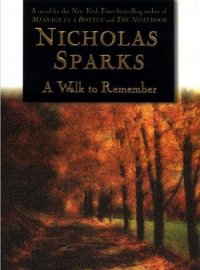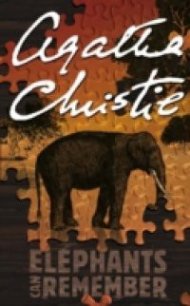Winter Fire - Landis Geoffrey Alan (читать книги полные .txt) 📗

Жалоба
Напишите нам, и мы в срочном порядке примем меры.
Winter Fire - Landis Geoffrey Alan (читать книги полные .txt) 📗 краткое содержание
Winter Fire читать онлайн бесплатно
Geoffrey A. Landis
Winter Fire
I am nothing and nobody; atoms that have learned to look at themselves; dirt that has learned to see the awe and the majesty of the universe.
The day the hover-transports arrived in the refugee camps, huge windowless shells of titanium floating on electrostatic cushions, the day faceless men took the ragged little girl that was me away from the narrow, blasted valley that had once been Salzburg to begin a new life on another continent: that is the true beginning of my life. What came before then is almost irrelevant, a sequence of memories etched as with acid into my brain, but with no meaning to real life.
Sometimes I almost think that I can remember my parents. I remember them not by what was, but by the shape of the absence they left behind. I remember yearning for my mother’s voice, singing to me softly in Japanese. I cannot remember her voice, or what songs she might have sung, but I remember so vividly the missing of it, the hole that she left behind.
My father I remember as the loss of something large and warm and infinitely strong, smelling of-of what? I don’t remember. Again, it is the loss that remains in my memory, not the man. I remember remembering him as more solid than mountains, something eternal; but in the end he was not eternal, he was not even as strong as a very small war.
I lived in the city of music, in Salzburg, but I remember little from before the siege. I do remember cafes (seen from below, with huge tables and the legs of waiters and faces looming down to ask me if I would like a sweet). I’m sure my parents must have been there, but that I do not remember.
And I remember music. I had my little violin (although it seemed so large to me then), and music was not my second language but my first. I thought in music before ever I learned words. Even now, decades later, when I forget myself in mathematics I cease to think in words, but think directly in concepts clear and perfectly harmonic, so that a mathematical proof is no more than the inevitable majesty of a crescendo leading to a final, resolving chord.
I have long since forgotten anything I knew about the violin. I have not played since the day, when I was nine, I took from the rubble of our apartment the shattered cherry-wood scroll. I kept that meaningless piece of polished wood for years, slept with it clutched in my hand every night until, much later, it was taken away by a soldier intent on rape. Probably I would have let him, had he not been so ignorant as to think my one meager possession might be a weapon. Coitus is nothing more than the natural act of the animal. From songbirds to porpoises, any male animal will rape an available female when given a chance. The action is of no significance except, perhaps, as a chance to contemplate the impersonal majesty of the chain of life and the meaninglessness of any individual’s will within it.
When I was finally taken away from the city of music, three years later and a century older, I owned nothing and wanted nothing. There was nothing of the city left. As the hoverjet took me away, just one more in a seemingly endless line of ragged survivors, only the mountains remained, hardly scarred by the bomb craters and the detritus that marked where the castle had stood, mountains looking down on humanity with the gaze of eternity.
My real parents, I have been told, were rousted out of our apartment with a tossed stick of dynamite, and shot as infidels as they ran through the door, on the very first night of the war. It was probably fanatics of the New Orthodox Resurgence that did it, in their first round of ethnic cleansing, although nobody seemed to know for sure.
In the beginning, despite the dissolution of Austria and the fall of the federation of free European states, despite the hate-talk spread by the disciples of Dragan Vukadinovi?c, the violent cleansing of the Orthodox church, and the rising of the Pan-Slavic unity movement, all the events that covered the news-nets all through 2081, few people believed there would be a war, and those that did thought that it might last a few months. The dissolution of Austria and eastern Europe into a federation of free states was viewed by intellectuals of the time as a good thing, a recognition of the impending irrelevance of governments in the post-technological society with its burgeoning sky-cities and prospering free-trade zones. Everyone talked of civil war, but as a distant thing; it was an awful mythical monster of ancient times, one that had been thought dead, a thing that ate people’s hearts and turned them into inhuman gargoyles of stone. It would not come here.
Salzburg had had a large population of Asians, once themselves refugees from the economic and political turmoil of the twenty-first century, but now prosperous citizens who had lived in the city for over a century. Nobody thought about religion in the Salzburg of that lost age; nobody cared that a person whose family once came from the Orient might be a Buddhist or a Hindu or a Confucian. My own family, as far as I know, had no religious feelings at all, but that made little difference to the fanatics. My mother, suspecting possible trouble that night, had sent me over to sleep with an old German couple who lived in a building next door. I don’t remember whether I said good-bye.
Johann Achtenberg became my foster father, a stocky old man, bearded and forever smelling of cigar smoke. "We will stay," my foster father would often say, over and over. "It is our city; the barbarians cannot drive us out." Later in the siege, in a grimmer mood, he might add, "They can kill us, but they will never drive us out."
The next few months were full of turmoil, as the Orthodox Resurgence tried, and failed, to take Salzburg. They were still disorganized, more a mob than an army, still evolving toward the killing machine that they would eventually become. Eventually they were driven out of the city, dynamiting buildings behind them, to join up with the Pan-Slavic army rolling in from the devastation of Graz. The roads in and out of the city were barricaded, and the siege began.
For that summer of 2082, the first summer of the siege, the life of the city hardly changed. I was ten years old. There was still electricity, and water, and stocks of food. The cafes stayed open, although coffee became hard to obtain, and impossibly expensive when it was available, and at times they had nothing to serve but water. I would watch the pretty girls, dressed in colorful Italian suede and wearing ornately carved Ladakhi jewelry, strolling down the streets in the evenings, stopping to chat with T-shirted boys, and I would wonder if I would ever grow up to be as elegant and poised as they. The shelling was still mostly far away, and everybody believed that the tide of world opinion would soon stop the war. The occasional shell that was targeted toward the city caused great commotion, people screaming and diving under tables even for a bird that hit many blocks away. Later, when civilians had become targets, we all learned to tell the caliber and the trajectory of a shell by the sound of the song it made as it fell.
After an explosion, there is silence for an instant, then a hubbub of crashing glass and debris as shattered walls collapse, and people gingerly touch each other, just to verify that they are alive. The dust would hang in the air for hours.
Toward September, when it became obvious that the world powers were stalemated, and would not intervene, the shelling of the city began in earnest. Tanks, even modern ones with electrostatic hover and thin coilguns instead of heavy cannons, could not maneuver into the narrow alleys of the old city and were stymied by the steep-sided mountain valleys. But the outer suburbs and the hilltops were invaded, crushed flat, and left abandoned.




